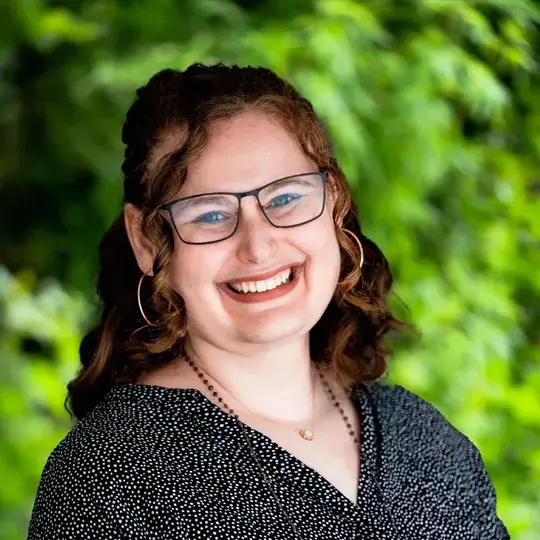The addict’s thought process is affected by drugs or alcohol. Secrecy, deception, and lack of accountability thrive within the confines of addiction. In addition, every individual connected to the addict is emotionally affected by the addiction. Trust is one of the essential elements of a relationship that is lost. Finding trust in addiction recovery is possible with hard work and a strong commitment by all parties.
The Importance of Trust
The importance of trust in addiction recovery continues when a newly detoxed addict begins therapy. Individual therapy builds an essential connection between a therapist and the addict. As confidence builds, the addict can speak their inner truth, and self-discovery begins. The therapist offers guidance to explore how the addiction started.
Trust in addiction recovery manifests in group therapy. First, group members must learn to trust each other to share common fears and experiences. Next, group monitors build trust by leading conversations to promote growth. Deeper conversations, the level of trust grows.
Finally, the importance of trust in addiction recovery continues with the support of the addict’s family and close friends. Forgiveness can begin to sprout on many levels. The addict must learn to forgive themself, and the family must extend forgiveness to let the rejuvenation process begin. Family support is crucial in the treatment process to prevent relapse.
Trust in Recovery Includes Commitment
Preventing relapse is paramount in addiction treatment. Unfortunately, according to the National Institute on Drug Abuse, relapse rates while in recovery are 40 to 60%.. The supportive family must form a balanced trust with the addict to prevent relapse. While trust in addiction recovery is difficult to maintain, asking non-invasive questions can help define the commitment.
If the family can answer yes to most of these questions, then they can trust that the responsibility is genuine to maintain sobriety. All parties must feel trust in addiction recovery. Maintaining honesty and being positive and encouraging is supportive behavior. Questions that can determine the nature of the addict’s commitment to sobriety:
- Is the addict actively attending individual and group meetings?
- Does the loved one seem engaged and excited about the treatment process?
- Is the treatment program on schedule?
- Is the addict’s loved one interacting with the entire support system?
- Are new lifestyle habits in effect to ensure healthy eating, sleeping, and exercise habits for the future?
- Is the addict making amends for past behaviors?
- Is there a difference in grooming, personality, and sociability?
Support System Must Build Trust with the Addict
For the family to build trust with the addict, they must participate in the treatment process. The support system must learn the triggers the addict might expect. Family and friends need to hold themselves accountable for behaviors that may have contributed to the addiction. Attending individual and group therapy is a form of commitment from the family.
An important consideration is to keep all addictive substances out of the home when the addict returns. In addition, prescription medications need to be under lock and key. Understand what family activities may cause discomfort for the newly sober addict, and be understanding if they do not participate. Finally, trust in addiction recovery goes beyond attending a few therapy sessions.
Six Ways to Restoring Trust in Addiction Recovery
The family of the addict and the addict both feel the need to right past wrongs. The family has learned how they may have contributed to the addiction through their therapy. Likewise, the addict, through individual and group therapy, has learned to make amends. Trust in addiction recovery can be successful with a commitment to the following six actions by the addict and the support system.
- Keeping Your Word: The goal is to regain credibility and build trust. Using healthy communication skills is also essential in keeping one’s word. Saying what you mean will build trust in addiction recovery. Asking for forgiveness when falling short is part of accountability.
- Respecting Boundaries: For boundaries to be an effective relationship tool, both parties must communicate them. Trust in addiction recovery is understanding that boundaries are a two-way street. They protect the recovering addict and the family from using enabling or harmful behaviors. You can regain trust if this is successful.
- You are Accountable: The addict and the support system need to be accountable for their actions. Trust in addiction recovery begins with taking responsibility for one’s actions. Likewise, being supportive of a recovering addict has a sense of responsibility. Support systems can not use enabling behaviors.
- Fulfillment of All Obligations: Fulfilling promises and responsibilities and proving worthiness come with proof of action. Trust in addiction recovery holds this factor high in priority. Words without actions are unreliable.
- Use Healthy Communication: Communication skills must be a regular practice in therapy and treatment. Carrying those healthy communication skills on through a recovery lifestyle builds credibility. Trust in addiction recovery is created through openness of communication and honesty.
- Acknowledge the Recovery at Work: Recognizing the progress made in recovery and being proud of accomplishment is a positive step. This involves the support system acknowledging the adherence to the sobriety commitment. Continuing with group meetings breeds support for the new lifestyle and can be helpful when challenges occur.
Find Trust in Addiction Recovery in California
Learn the crucial factors of building trust in addiction recovery with Launch Centers in Los Angeles. Our multi-faceted programs have a proven success rate in our detox and treatment programs. Contact our staff to answer any questions and schedule an assessment. Launch Centers encourages trust in our treatment staff and programs. We urge you to contact us today.






